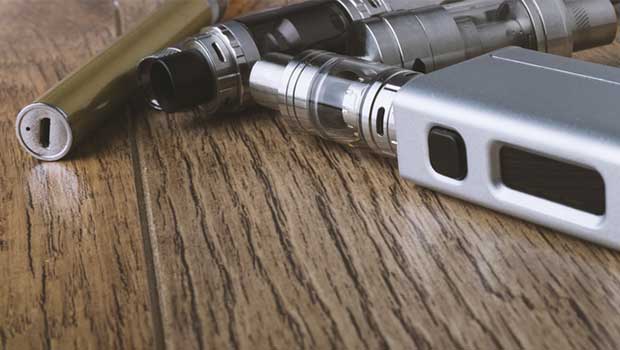
FDA Steps Up Actions on e-Cigarettes
FDA remains committed to the potential benefits e-cigarettes offer in helping adult smokers transition away from combustible cigarettes, "but we cannot allow that opportunity to come at the expense of addicting a whole new generation of kids to nicotine," said FDA Commissioner Dr. Scott Gottlieb.
The U.S. Food and Drug Administration sent letters Oct. 12 to 21 e-cigarette companies, including the manufacturers and importers of Vuse Alto, myblu, Myle, Rubi, and STIG, seeking information about whether more than 40 products – including some flavored e-cigarette products – are being illegally marketed and outside FDA's current compliance policy. These new actions build on those taken by FDA in recent weeks as part of its Youth Tobacco Prevention Plan to address what it calls the "epidemic of youth e-cigarette use." The recent actions include cracking down on the sale and marketing of e-cigarettes to children and educating youth about the dangers of using them.
"Companies are on notice – the FDA will not allow the proliferation of e-cigarettes or other tobacco products potentially being marketed illegally and outside of the agency's compliance policy, and we will take swift action when companies are skirting the law," said FDA Commissioner Dr. Scott Gottlieb. "Given the explosive growth of e-cigarette use by kids, we're committed to taking whatever measures are appropriate to stem these troubling use trends. We're going to address issues related to the access kids have to e-cigarettes, as well as the youth appeal of these products. If products are being unlawfully marketed and outside the FDA's compliance policy, we'll act to remove them. This includes revisiting our compliance policy that has resulted in certain e-cigarettes, including flavored e-cigarettes, remaining on the market until 2022 while their manufacturers submit applications for premarket authorization. Further, many of these products pose particular concerns given their use of flavors. We know flavors are one of the principal drivers of the youth appeal of e-cigarettes, and we're looking carefully at this."
He said the federal agency remains committed to the potential benefits e-cigarettes offer in helping adult smokers transition away from combustible cigarettes. "But we cannot allow that opportunity to come at the expense of addicting a whole new generation of kids to nicotine," he said. "We'll take forceful steps to stem the youth use, even if our actions have the unwelcome effect of impeding some opportunities for adults. These are the hard trade-offs we now need to make. We've been warning the e-cigarette manufacturers for more than a year that they need to do more to stem the youth use. No reasonable person wants to see these products reaching epidemic use among kids. Retailers and manufacturers of e-cigarettes know that the FDA is aggressively enforcing the law to ensure they are complying with prohibitions against marketing and selling to kids. Through these actions – and with more to come in the weeks and months ahead – we're committed to doing all we can to reverse the disturbing trends of youth tobacco use, especially e-cigarettes. I'll do everything I can to curb the epidemic of youth use."
FDA implemented a new compliance policy related to the deadline for companies to submit tobacco product review applications for "deemed" tobacco products that were on the market as of Aug. 8, 2016 – the effective date of the final deeming rule that extended FDA's authority to additional tobacco products such as e-cigarettes. The compliance policy provided manufacturers additional time to develop higher-quality, more complete applications. Since the extension, however, FDA has received complaints that some companies may be marketing new products that do not meet the Food Drug and Cosmetic Act's premarket requirements and that were introduced or modified after the Aug. 8, 2016, effective date.
The letters sent Oct. 12 ask companies to provide information about the products in question, including evidence that the product is a deemed product that was on the market as of Aug. 8, 2016 and has not been modified since that date. JUUL Labs Inc. did not receive such a letter, as the company was separately subject to a recent unannounced on-site inspection of its corporate headquarters, which sought similar information about its marketing practices.
FDA also sent letters Sept. 12 to five major e-cigarette manufacturers whose products – JUUL, Vuse, MarkTen, blu e-cigs, and Logic – comprise more than 97 percent of the market share for closed system ENDS products. The letters asked those firms to submit to FDA within 60 days plans describing how each firm will address the widespread youth access and use of its products.